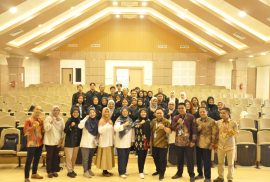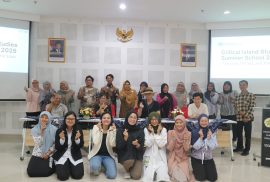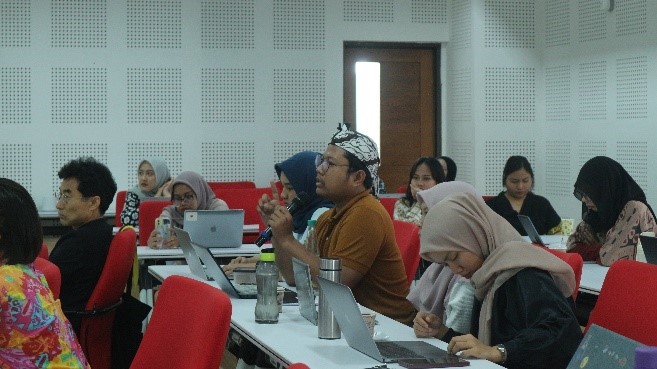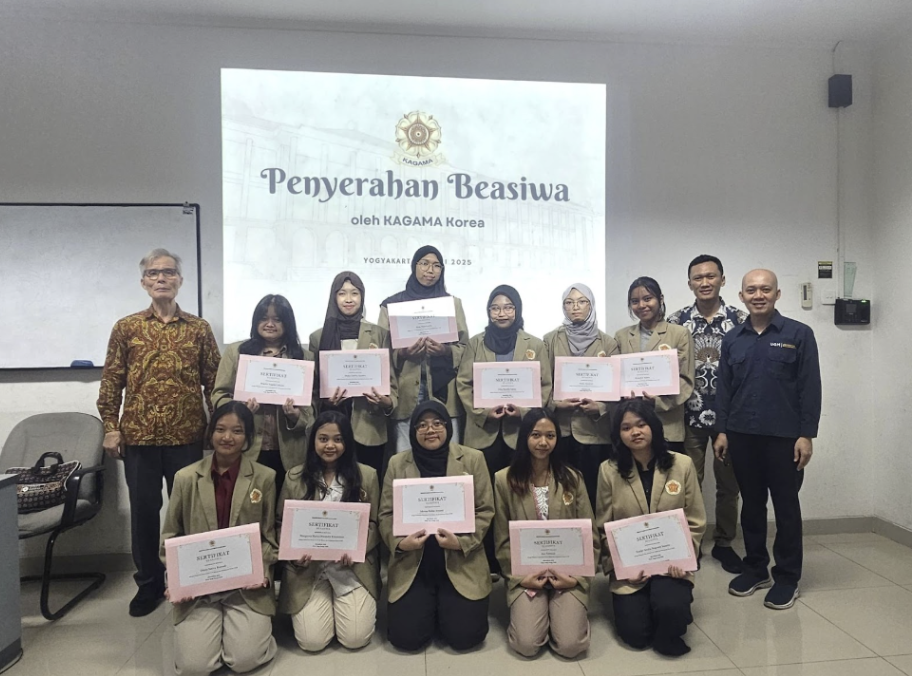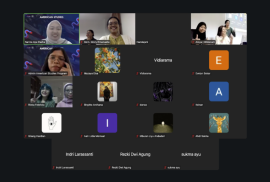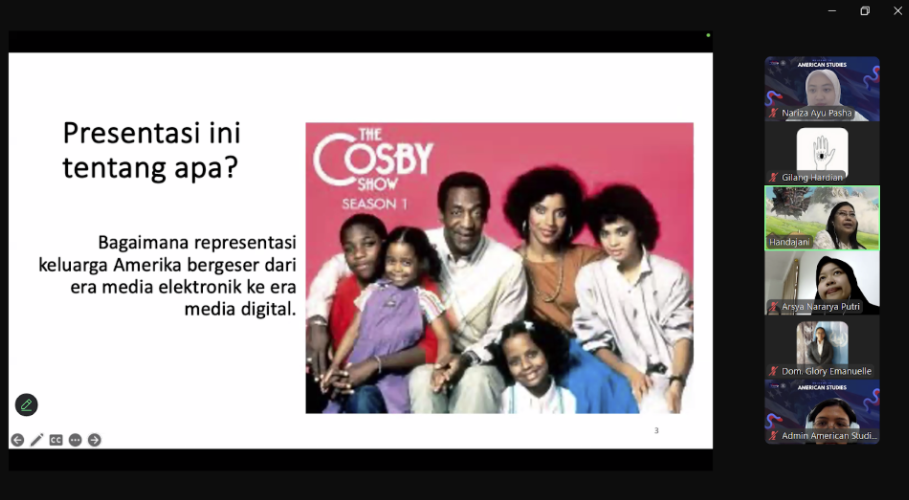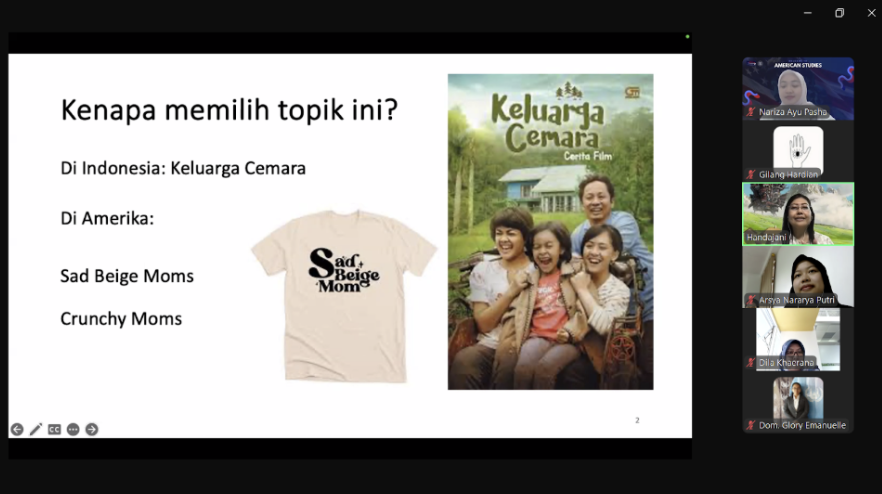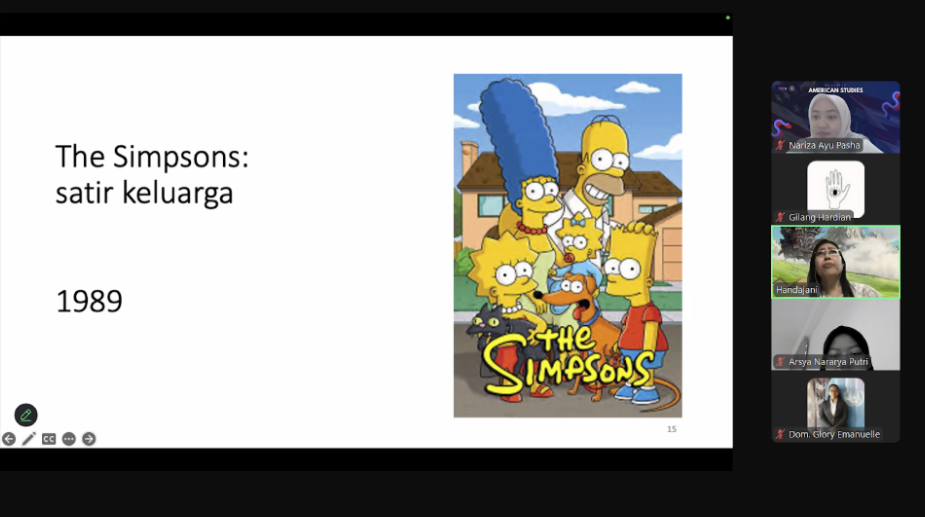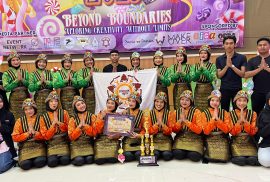Yogyakarta, June 2, 2025 — The International and Indonesian Language Learning Center (INCULS), Faculty of Cultural Sciences (FIB), Universitas Gadjah Mada, welcomed an academic visit from students and lecturers of the English Literature Study Program, Universitas Duta Bangsa Surakarta. The event took place on Monday, June 2, 2025, from 09.00 to 11.00 WIB at the Auditorium of Prof. Dr. R.M. Ng. Poerbatjaraka FIB UGM.
The visit began with opening remarks from the Deputy Coordinator of INCULS, Wiastiningsih, S.S., M.A., Ph.D., who expressed appreciation for the enthusiasm of the visiting participants and emphasized the importance of collaboration and knowledge exchange between higher education institutions in broadening students’ academic horizons. In her speech, Dr. Wiastiningsih also introduced the vision and programs of INCULS to the visiting students.
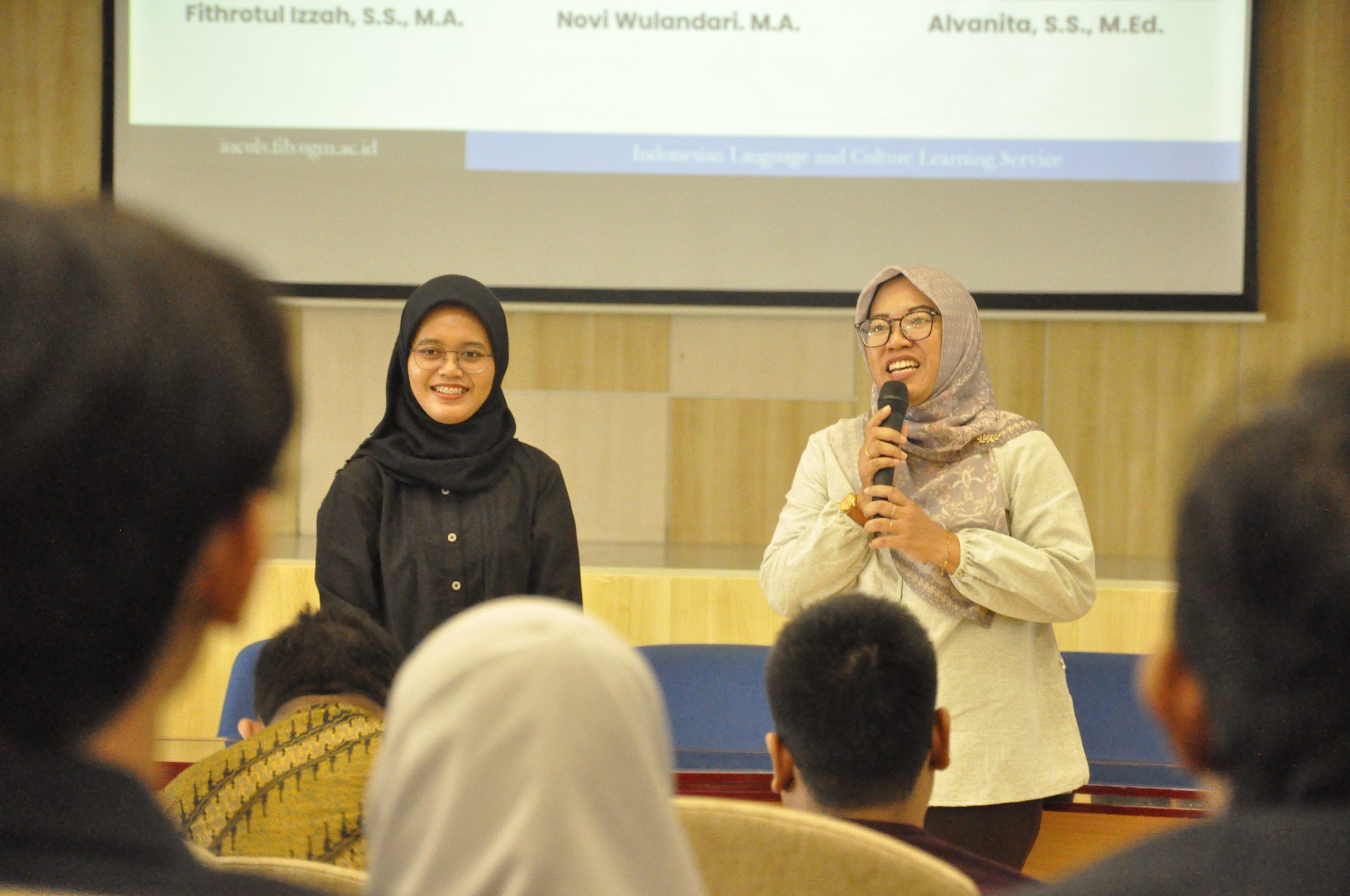
The event continued with a presentation session delivered by three INCULS instructors: Fitthrotul Izzah, S.S., M.A., Novi Wulandari, M.A., and Alvanita, S.S., M.Ed.—all of whom are alumni of the English Literature Program at FIB UGM.
The speakers shared their personal journeys, from becoming instructors at INCULS to pursuing advanced degrees abroad. They discussed cultural adaptation processes, academic challenges, as well as the motivations and strategies for self-development within international academic environments. Their presentations offered both inspiration and practical insights for students interested in pursuing further studies and participating in global academic mobility.
The Q&A session emerged as one of the most engaging parts of the event. A student named Hans posed a question about the motivations behind the speakers’ decisions to pursue their studies abroad. The speakers responded reflectively, underscoring the importance of curiosity, the courage to step outside of one’s comfort zone, and the commitment to developing academic and professional competencies through international experiences.
This event not only served as a platform for academic exchange but also strengthened the network between Universitas Duta Bangsa Surakarta and Universitas Gadjah Mada. It is hoped that this visit will inspire students to further explore the global academic landscape and prepare themselves to become competitive individuals at both national and international levels.
Writer: Public Relations of FIB UGM, Muhammad Ebid El Hakim

